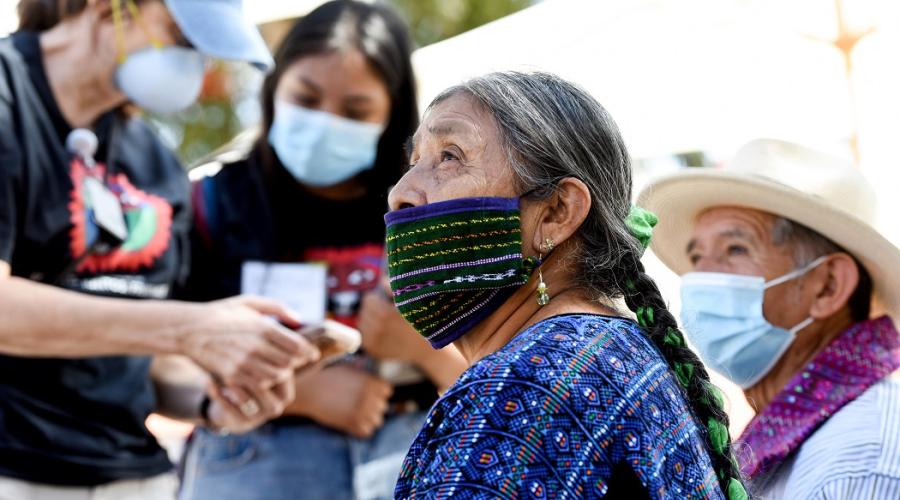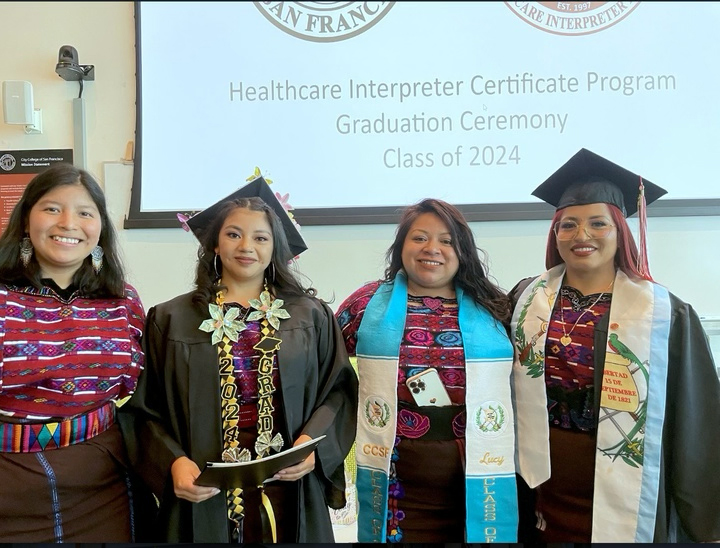
Breaking Down Barriers: The Vital Role of Mam-Speaking Healthcare Interpreters
When Mam-speaking immigrants seek medical care, language barriers often add stress and confusion, making it difficult to describe symptoms and understand treatment plans.
Recognizing this challenge, the UCSF Department of Pediatrics, in partnership with the Oakland Unified School District Alumni Highway to Work Programs and the UCSF Center for Science Education and Outreach, has launched a new program at UCSF Benioff Children’s Hospital Oakland, training Mam-speaking Bay Area residents to serve as healthcare interpreters.
This initiative is more than just a service; it's a lifeline for the Mam-speaking community, an indigenous group from Guatemala with tens of thousands of speakers in Oakland alone.
Emily Frank, MD, who leads the Highway to Healthcare Interpreter program, highlights the urgent need for this service, noting that the hospital receives over 1,000 requests annually for Mam interpreters—yet tele-interpretation services often fall short due to the lack of Mam-speaking staff.
“Equitable care requires that people fully understand their diagnosis and how to follow the prescribed treatment to ensure the best possible outcome. They need to feel comfortable asking questions,” said Frank, an assistant professor of Pediatrics at UCSF.
By training more Mam-speaking residents as interpreters, the program seeks to improve communication between healthcare providers and patients who speak Mam, ensuring better care and health outcomes for this underserved community. “We processed 67 requests for Mam interpretation services in July alone, and we have the capacity for more,” said Hilda Diaz, Interpreter Services Manager at UCSF Benioff Oakland.
Rigorous Training and Cultural Insight
The training for these interpreters is comprehensive, covering medical terminology, hospital protocols, ethical conduct, and interpretation skills. However, the most crucial skill they bring is their deep cultural knowledge and sensitivity. This understanding enables them to read non-verbal cues and cultural nuances often missed by others, ensuring that patients feel understood and respected.
"The cultural and community knowledge these interpreters have is invaluable; the technical skills can be taught, but the cultural insight they bring is irreplaceable," adds Frank.
In partnership with the Healthcare Interpreting Certificate Program at City College of San Francisco, an expedited curriculum was developed that first immersed the participating Mam speakers into the hospital environment, giving them proper context for the later coursework.
What the Interpreters Are Saying
“I could immediately feel and see that the professional Spanish interpreters were making their patients more comfortable and engaged. Seeing their impact encouraged me to stick with the program so I could do the same,” said Yosili Mendoza, a graduate of Oakland International High School and one of the newly trained Mam interpreters.
Many Mam-speaking patients currently list Spanish as their primary language, but the two languages couldn’t be more different. Often, their understanding of Spanish is limited, leading to shyness or embarrassment during doctor visits. The next time they’re ill, they may avoid seeing a doctor until their issues are severe.
"I hope that once people know Mam interpreters are available, they'll feel more comfortable seeking care at hospitals and clinics," said Yosili. “It’s so important that we take advantage of these opportunities and be in positions to help our community.”

Beyond the Hospital Walls
This program does more than just enhance patient care—it’s a powerful example of workforce development and community investment. By training Mam-speaking residents, UCSF is equipping community members with valuable skills that can lead to meaningful employment in healthcare, a sector always in need of culturally competent professionals. All graduates of the Mam-interpreter training program are also graduates of Oakland Public High Schools.
“The program’s success is based on our partnership with the City College certificate program and our existing connections with the community. Our school-based community clinics provided a direct line to the Mam community where we spread word of the program’s need and encouraged people interested in a healthcare career to join, like Yosili,” said Frank.
The Highway to Healthcare Interpreter pilot partnership is funded by UCSF’s Center for Science, Education, and Outreach (CSEO), a Pediatric Department Diversity and Inclusion grant, and a Haas Foundation to Oakland United School District grant.
